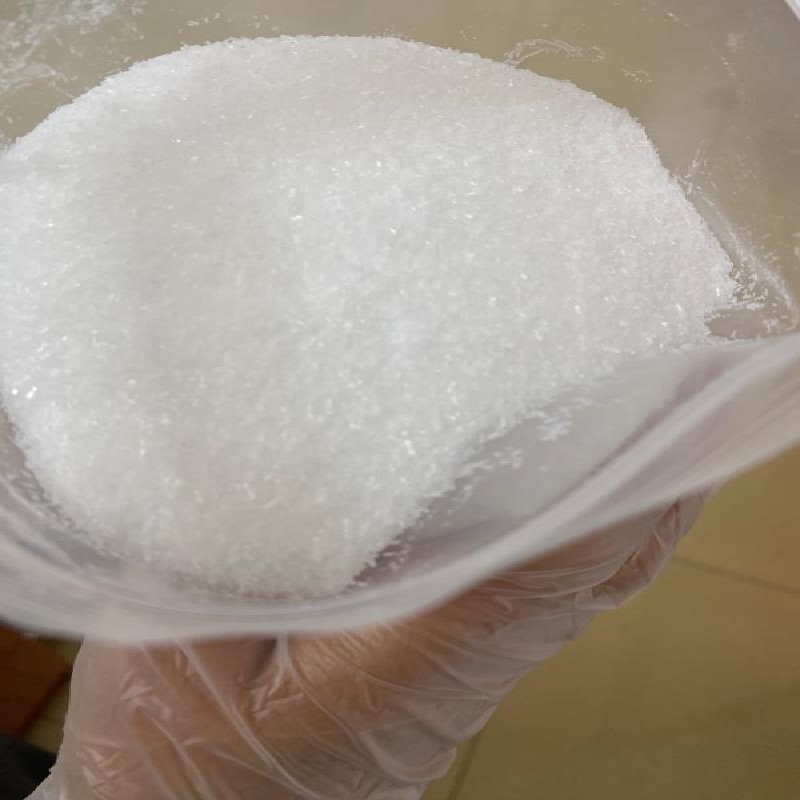-
Categories
-
Pharmaceutical Intermediates
-
Active Pharmaceutical Ingredients
-
Food Additives
- Industrial Coatings
- Agrochemicals
- Dyes and Pigments
- Surfactant
- Flavors and Fragrances
- Chemical Reagents
- Catalyst and Auxiliary
- Natural Products
- Inorganic Chemistry
-
Organic Chemistry
-
Biochemical Engineering
- Analytical Chemistry
-
Cosmetic Ingredient
- Water Treatment Chemical
-
Pharmaceutical Intermediates
Promotion
ECHEMI Mall
Wholesale
Weekly Price
Exhibition
News
-
Trade Service
Written by Nagashi
EditorWang Duoyu
TypesettingWater writing
Alzheimer's disease (AD), commonly known as "Alzheimer's disease", is a type of central nervous system degenerative disease
that mainly occurs in the elderly and is characterized by progressive cognitive dysfunction and behavioral damage.
As the average human life expectancy increases, so does the prevalence of Alzheimer's disease
.
According to data released by the China Association for the Ageing, there are about 15.
07 million Alzheimer's disease patients among the elderly aged 60 and above in China, causing a huge burden
to families and society.
Unfortunately, despite the much effort that the scientific community has invested in Alzheimer's disease, there is still no very effective treatment plan to prevent or cure Alzheimer's disease
.
On November 16, 2022, the team of Lihui Cai of the Massachusetts Institute of Technology (MIT) published a report on Nature entitled: APOE4
Research paper on impairs myelination via cholesterol dysregulation in oligodendrocytes.
The study constructed a single-cell map of the transcriptional role of APOE4, the strongest genetic risk factor for Alzheimer's disease, in the aging human brain, and established a functional link between APOE4, cholesterol, myelination and memory, providing opportunities for the treatment of Alzheimer's disease
.
Professor Cai Lihui, a corresponding author of the paper and a neuroscientist at MIT, said that the paper clearly shows that APOE4 has a very obvious effect
on different brain cell types in a genotype-specific way through single-cell sequencing of postmortem human brains.
Encouragingly, this study has observed ways to salvage oligodendrocytes function and myelination in mouse models
.
Genetic variation is the most important risk factor for Alzheimer's disease, and genome-wide association analysis studies have shown that APOE4 is the strongest genetic risk factor for Alzheimer's disease, and APOE4
is present in 40%-50% of Alzheimer's disease patients.
The risk of Alzheimer's disease increases 3-fold when there is one copy of APOE4 and 8-12-fold
when both copies are APOE4.
Several studies have found that APOE4 is associated with
increased β-amyloid deposition, excessive phosphorylation and aggregation of tau protein, and accelerated cognitive decline.
However, the mechanism by which APOE4 mediates these effects is not fully understood
.
Therefore, elucidating the molecular mechanism and cellular pathway of APOE4-induced Alzheimer's disease is important
for the prevention and cure of Alzheimer's disease.
APOE is a lipid and cholesterol transporter, and APOE4 is one of the allele forms that alters the accessibility of lipid-binding regions, thereby interfering with cholesterol and lipid transport
.
To gain a more comprehensive understanding of the effects of APOE4 on the human brain, the research team first performed single-cell nuclear transcriptome sequencing (snRNA-seq) on the prefrontal cortex (the cognitive center of the brain)
tissue of 32 deceased patients.
Changes in cell type-specific APOE4-related pathways
can be divided into two categories – APOE4 allele carriers and non-carriers
.
The results of the analysis showed that APOE4 was associated with extensive gene expression changes in all types of cells in the human brain and significantly altered signaling pathways
associated with cholesterol homeostasis and transport.
APOE4 altered cholesterol homeostasis and localization
in oligodendrocytes in the human brain Not only that, but the team also created a study of postmortem human brains, induced pluripotent stem cells (iPS).
Histology and lipidomic analysis of source cells and targeted replacement mice are further corroborated
.
They found that cells with APOE4 tended to hoard cholesterol inside internal organelles, and they excreted relatively small amounts of cholesterol, which made them less prone to myelinization
.
These results showed that: 1) APOE4 altered the biosynthesis, transport and localization of cholesterol in human and mouse oligodendrocytes, resulting in abnormal cholesterol deposition; 2) APOE4 is associated with
endoplasmic reticulum stress and decreased myelination.
APOE4 causes impaired
myelination in mice and humans, so if we can eliminate the effects of APOE4 on cholesterol transport, can it cure its induced Alzheimer's disease?
Based on this, the research team treated the cells carrying APOE4 with the drug cyclodextrin, which promotes the removal of cholesterol, which helps restore the formation
of myelin.
They also found that in mice containing two copies of APOE4, cyclodextrin expelled cholesterol from the brain, improved cholesterol transport to the myelin sheath, and improved cognitive performance
in mice.
Cyclodextrin improves myelination as well as learning and memory behavior
in older APOE4 mice It is worth noting that the results of the mouse experiments coincided with the experience of one Alzheimer's disease patient
.
The patient took a similar cyclodextrin preparation in one trial, and the patient's cognitive function remained stable
during 18 months of treatment.
However, cyclodextrin may not be the ideal drug to correct lipid imbalances
in the brain, it simply depletes cholesterol in cells, and its safety and efficacy remain unknown.
All in all, the study, published in Nature, showed that APOE4 induces Alzheimer's disease
by affecting cholesterol transport in neurons to reduce the formation of myelin.
These findings suggest that cholesterol imbalance may be an important cause of the onset of Alzheimer's disease, providing a new avenue
for the treatment of Alzheimer's disease.
Paper link: style="color: rgb(136, 136, 136);font-size: 12px;" _mstmutation="1" _istranslated="1">
open reprint, welcome to forward to the circle of friends and WeChat group







